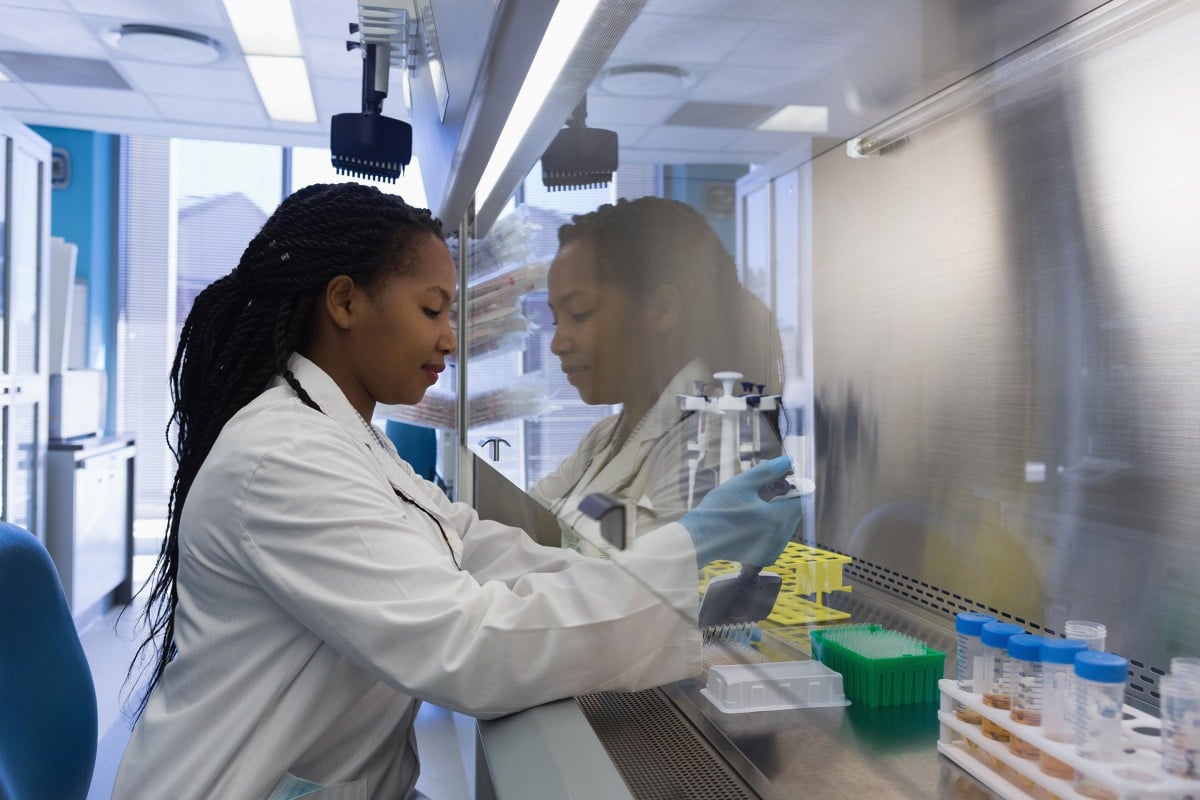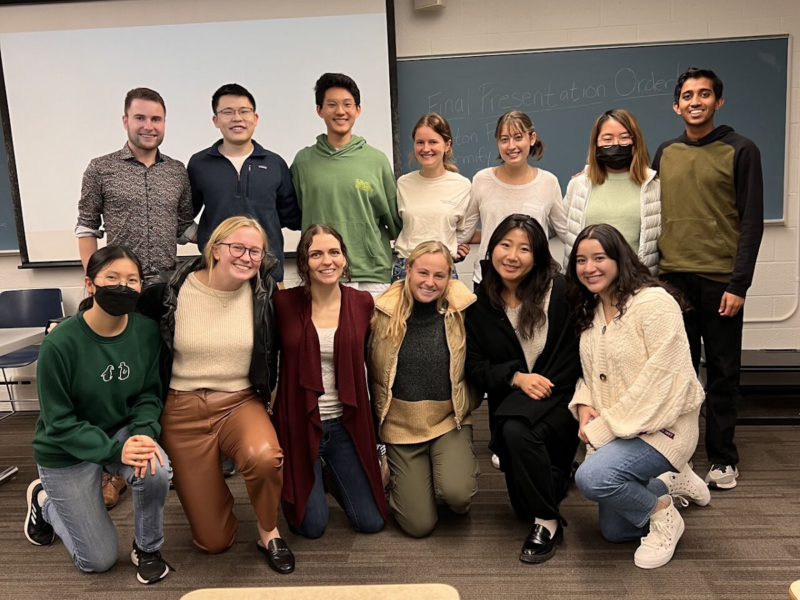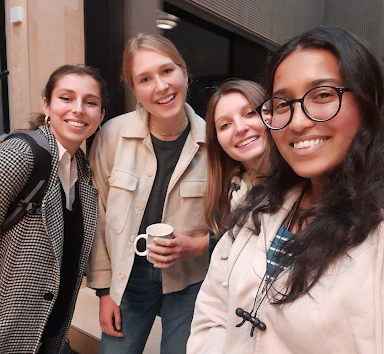Bringing diverse voices to the alternative protein table

Alt proteins can be a solution to some of the world’s most pressing challenges
Meat made from plants or cultivated from cells can dramatically reduce emissions, require far less land, eliminate the need for antibiotics in our food system, and feed more people with fewer resources.
The alternative protein industry is poised to engineer as much positive social change as it is physical change and innovate beyond just its products and production methods. The alt protein industry can (and should) distinguish itself as a diverse and inclusive scientific field if it is to realize a truly equitable food future for all.
Most existing scientific fields lack equal representation and opportunities for women and people with other underrepresented gender identities. In 2021, women made up 51% of the US population, but only 35% of people with careers in STEM. Globally, women make up only “19.9% of science and engineering professionals.” As an emerging field, the alt protein industry is free from the institutional inertia that can restrict equal representation in more established sectors. It holds a special opportunity and responsibility to support and leverage solutions presented by diverse voices from the start.
Student leaders of Alt Protein Project chapters are already working to make the goal of equal representation a reality. Alt Protein Project chapters around the world are uplifting student voices and their leaders are establishing their campuses as alt protein ecosystems where education, research, innovation, diversity can thrive. Emily Yao and Gauri Undegaonkar, the presidents of the Johns Hopkins University and Denmark Technical University chapters, respectively, are two such thought leaders whose work is ensuring that diverse voices have a place both on their campuses and in the global alt protein space.
Emily Yao turned to alt proteins when she realized she wanted to work in an industry with values like her own

As a student of materials science and engineering at Johns Hopkins, Emily initially thought she would pursue a career in pharmaceuticals or the traditional food industry. However, upon hearing guest lectures from individuals in those fields and noticing a flyer for the Alt Protein Project on campus, Emily realized the field of alt proteins was a much better fit for her values.
Since joining the APP at Johns Hopkins, Emily has worked diligently to infuse her values and passion into the chapter’s projects—first on their research team, then education team, and now as their president. As president of the Johns Hopkins Alt Protein Project, she leads the student chapter as they work on a variety of projects to expand alt protein opportunities on campus—from planning alumni panels to designing and launching revolutionary courses on alt proteins, like their “Future Food Manufacturing” course from this past fall. Emily is motivated to empower anyone and everyone who mobilizes around the values of a just, secure, and sustainable food system.
“Everyone I meet in this field is so inspired and enthusiastic because there’s not a direct pipeline into the field. They find themselves in alternative proteins because of the mission.”
The intellectual diversity of the field is a source of motivation and inspiration for Emily. With backgrounds in a variety of subjects beyond food technology, such as public health, engineering, and policy, people are always “open to learning and helping others learn.”
“I’m also excited about the interdisciplinary nature of alternative proteins, and how people come into these jobs with a well-rounded understanding of why the work is important.”
As for the future of the field, Emily is excited about diversity and inclusion not only within the community, but also with the solutions and products that the industry seeks to create.
“If we are hoping to change a global food system, we need to consider global cultures. Adapting alternative proteins in a way that takes into consideration different cultures and supporting leaders who are trying to start companies in these regions is really important.”
Growing up in a family of business owners, Gauri Undergaonkar has always been intrigued by innovation
Gauri is a masters student at the Technical University of Denmark (DTU) finishing her thesis in protein chemistry and enzyme technology. She entered the alt protein field after she came across an article in the Times of India about emerging companies in India.
Given Gauri’s passion for innovation and desire to explore new questions, it’s no surprise she was immediately enticed by a field with, as she describes, such “immense potential.” Gauri saw excitement for alt proteins flourishing on her campus through the various startups and researchers at DTU, but she also saw a need for a real network where people could connect, collaborate, and learn from one another. Thus, she co-founded the DTU Alt Protein Project (DTU APP).

“That was the one thing I really wanted to change: when new people come to DTU, I don’t want them to be stuck figuring out who to talk to.”
DTU APP is completely women-led. Their leadership board comes from a variety of disciplinary backgrounds, including engineering, chemistry, and business. Gauri, like Emily, sees the power in the strong female presence within her chapter to bolster diversity and inclusion within the larger alt protein field.
“Representation is very important when it comes to the younger generations who are trying to figure a way out in their life… people will dream what they are shown.”
She has no plans of leaving the alt protein field, with hopes to capitalize on the technical and leadership experience she has gained as DTU APP president by founding her own plant-based alt protein start-up.
Empowering every voice at the alt protein table
Emily and Gauri both represent the power the alt protein field has to not only reimagine our food system, but also mobilize around a diverse, equitable, and inclusive global community. Their success across different academic environments demonstrates the need for and benefit of engaging every corner of the global community in the journey to a world where alternative proteins are no longer alternative.
Diversity leads to resilience in both our natural world and the communities we build. In ecology, the more diverse an ecosystem is, the greater its resilience and capacity for renewal and reorganization following periods of stress or major change. Within GFI’s global network, the diversity of thought, expertise, life experiences, backgrounds, and identities strengthen our collective work. In science and technology, adaptability and innovation increase alongside the diversity of research teams. The alt protein field is made stronger by its interdisciplinary nature and the multiplicity of voices represented within it.
As researchers around the world commit more time and resources towards the world’s abundance of biodiversity, they continue to uncover novel crops for alt protein development like African oil bean seed and Brazil nuts. With each new discovery, alt protein researchers “sustainably enhance alternative protein products and boost local economic development.” Likewise, alt proteins will continue to grow and thrive if we continue to support and uplift diverse voices in the field.
As Gauri so aptly put, “This field is new. We have a chance to start something from scratch…We might as well do it the right way.”

Page
Apply to the Alt Protein Project
Interested in bringing the alternative protein field to your university? Apply to join our community of student movement-builders around the globe.

